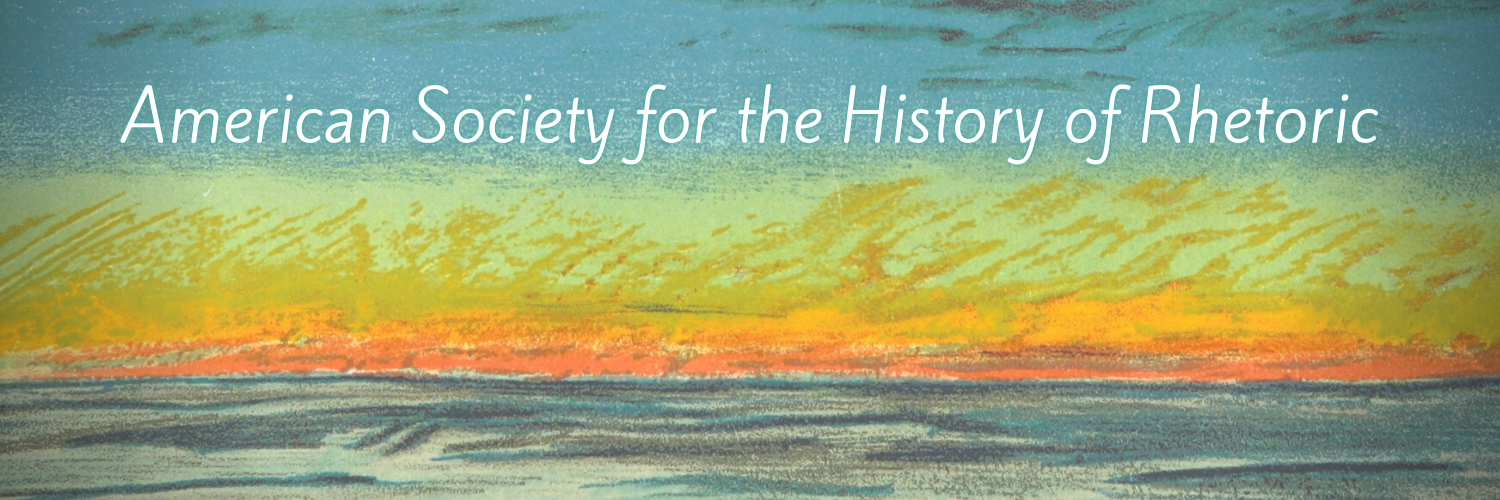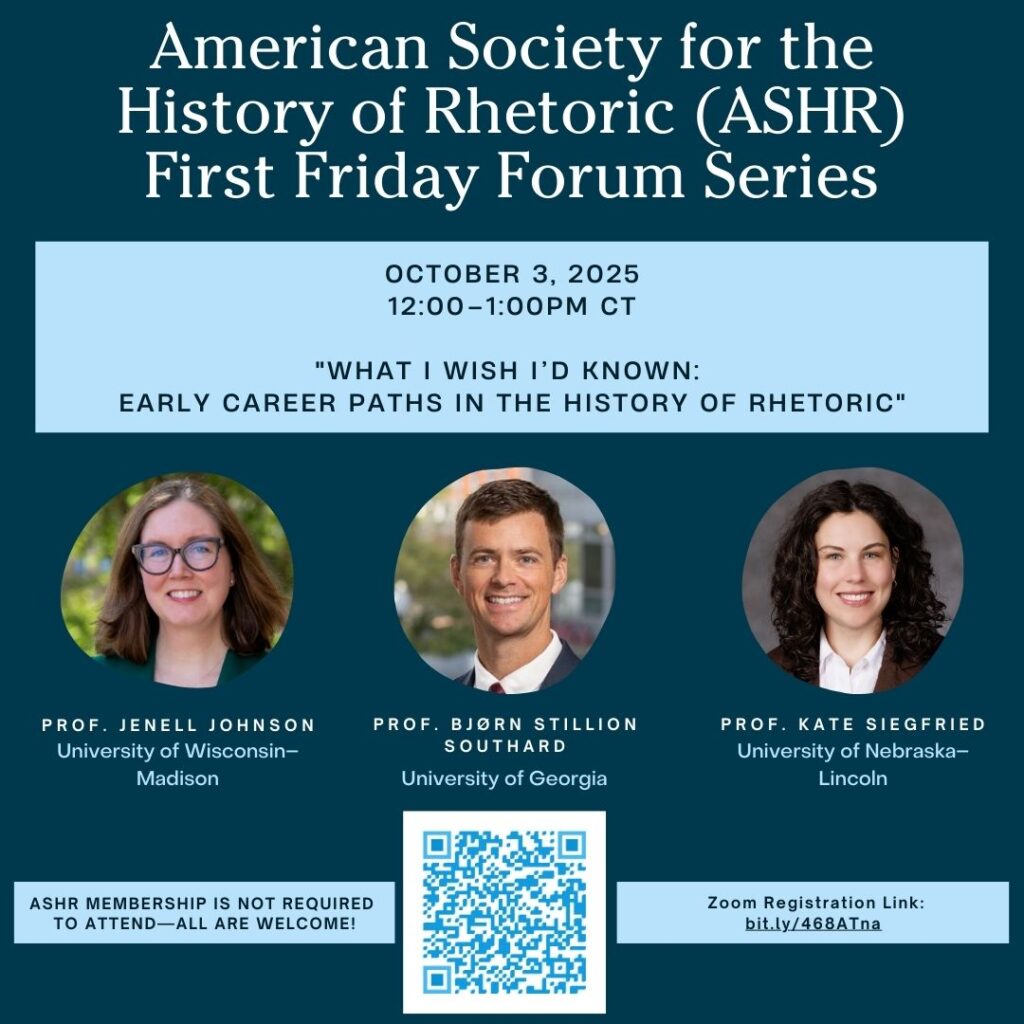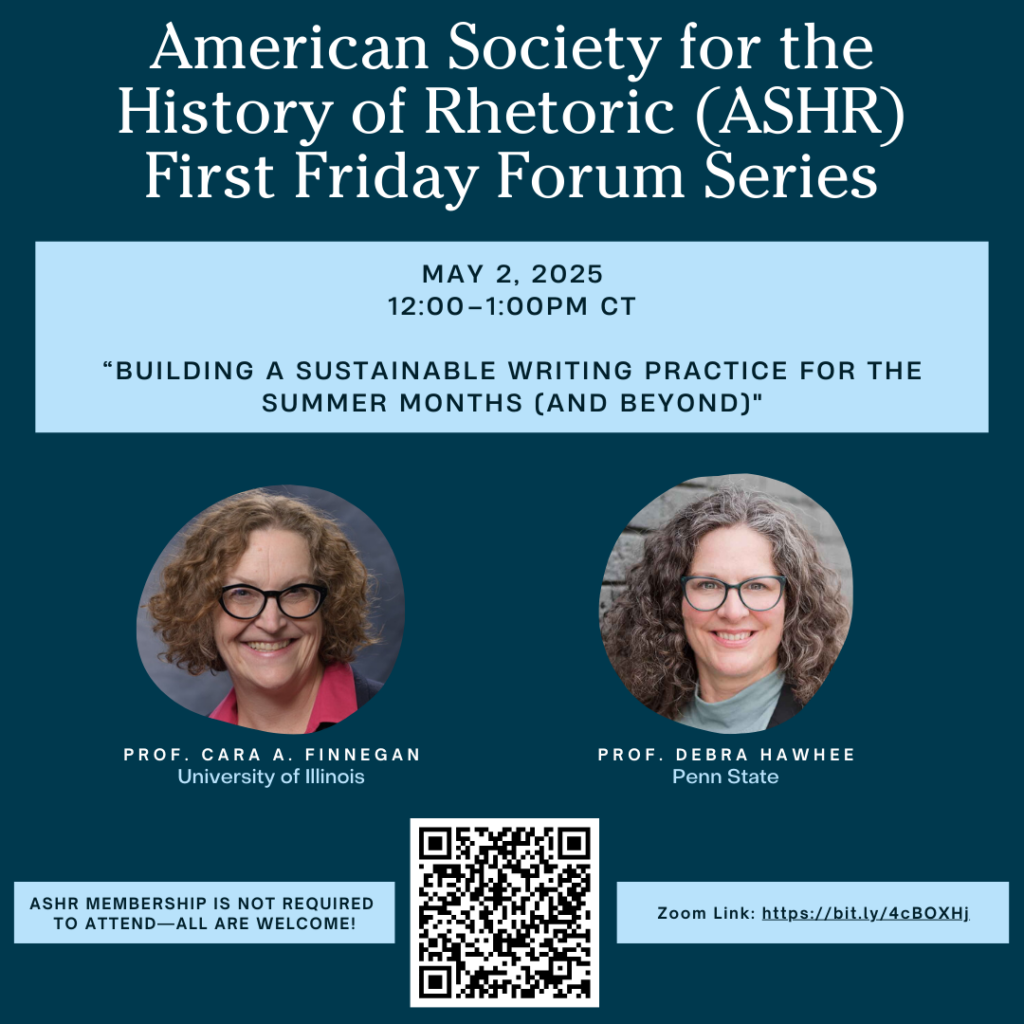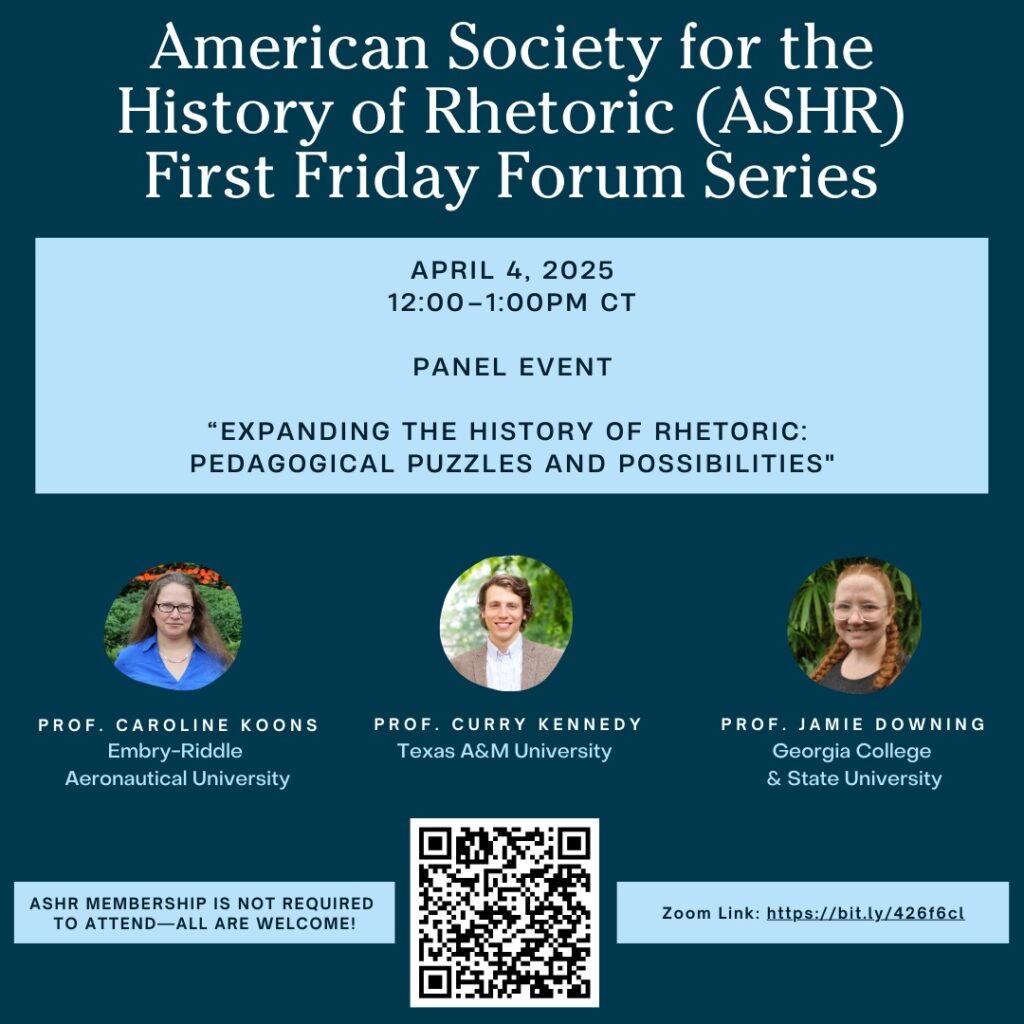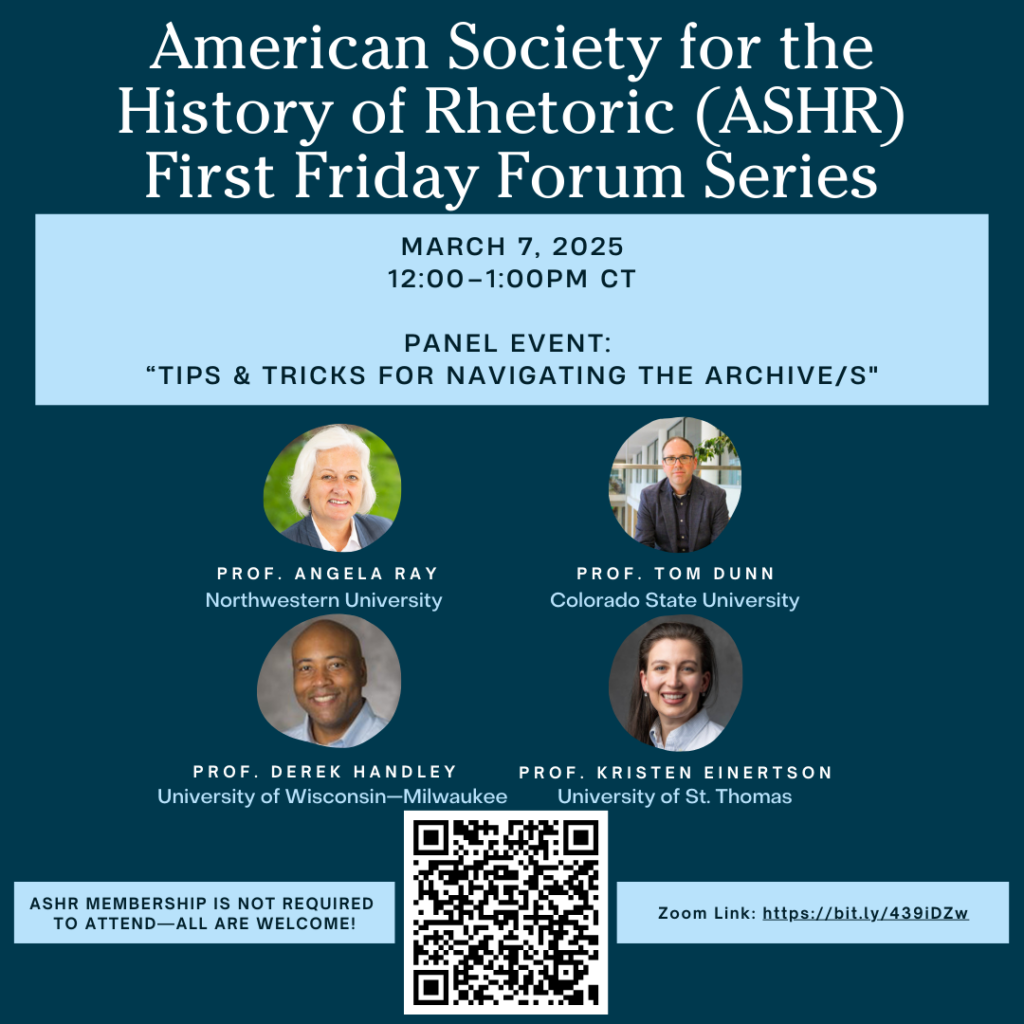Rhetorical History’s Past, Present, and Future
The American Society for the History of Rhetoric (ASHR), in collaboration with the International Society for the History of Rhetoric (ISHR), invites proposals for its 2026 Symposium. This interdisciplinary event will take place May 21-22, 2026, during the Rhetoric Society of America (RSA) Biennial Conference in Portland, Oregon.
The academic study of rhetorical history embodies a rich, complex, and layered history of its own. The 2026 ASHR Symposium theme, “Rhetorical History’s Past, Present, and Future,” invites scholars to recognize this legacy and to reflect on the theories, methods, and critical practices that define its scope and purpose.
The history of ASHR itself invites us to take stock of what this organization has been, is, and might be. In 1977, inspired by the International Society for the History of Rhetoric (ISHR), a small group of US-based historians of rhetoric convened to develop more robust conference programming featuring the history of rhetoric. These efforts led to panels focused on the history of rhetoric at the Speech Communication Association (now the National Communication Association), the first history of rhetoric pre-conference at RSA in 1986, and the formation of the American Society for the History of Rhetoric in 1990. As scholarly conversations about the history of rhetoric flourished across conferences, journal articles, edited volumes, and single authored works, David Zarefsky outlined four “senses” of rhetorical history: the history of rhetoric, the rhetoric of history, historical studies of rhetorical practice, and rhetorical studies of historical events. These distinctions were useful “not for boundary drawing,” he wrote in 1998, “but for understanding the richness of our field.” The 2026 ASHR Symposium will commemorate this rich past, consider the current state of historical / rhetorical scholarship today, and chart a path for the future of ASHR and the history of rhetoric more broadly.
Mindful of ASHR’s rich history and cognizant of the possibilities and perils that inform academic scholarship today, this Symposium provides a space for scholars at all career stages to engage and reflect on the theories, methods, critical orientations, and research questions that ground studies of rhetorical history, broadly defined. We invite paper proposals that address at least one the following questions:
- What is the disciplinary legacy (or legacies) of the history of rhetoric, and how has this mode of inquiry shaped the field of rhetoric more broadly?
- What methods or modes of inquiry characterize the current focuses/foci of rhetorical history and the history of rhetoric, and what new approaches might we consider?
- How might rhetorical scholars be especially well-positioned to study and engage with the rhetoric of history, particularly in the context of our current moment?
- What subject areas remain unexplored (or underexplored) in the history of rhetoric?
- How does an international or transnational lens shift our study of the history of rhetoric?
- How can we make the study of rhetorical history even richer, more expansive, and more inclusive?
- What methods or theories might best carry the study of rhetorical history into the future?
Presenters may address one (or more) of the questions above through a specific case study or focus on a specific theoretical, methodological, or critical approach as a direction for future scholarship. Regardless of the approach, presenters should be sure to articulate how their presentation contributes to the Symposium theme of advancing the study of rhetorical history.
In addition to the traditional panel format, this Symposium will also feature keynote speakers, facilitate small group research clusters (details and application forthcoming), and include an evening reception on Thursday, May 21 celebrating the fifty-year partnership between ASHR and ISHR.
Submission Guidelines
Please submit a paper title, abstract (no more than 500 words), author biography (no more than 100 words), and contact information by October 31, 2025 via this link. Paper acceptances and program information will be sent out in late January 2026.
Please contact Dr. Allison Prasch, incoming ASHR president and organizer of the 2026 ASHR Symposium, with questions via email (aprasch@wisc.edu).

